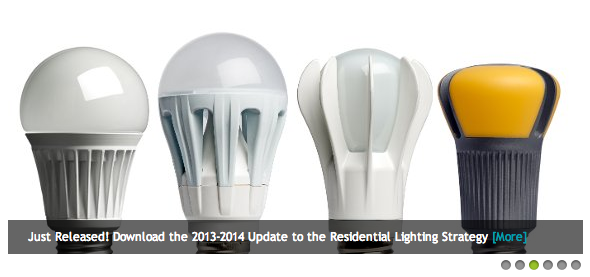When I started my internship at Northeast Energy Efficiency Partnerships (NEEP) back in June I was unsure of how I was going to handle my position since I went into with a limited knowledge of energy efficiency issues. Writing a report on energy efficiency resource standards is one thing, but interning with an organization on their public policy team to research, develop, and comment on various regulatory proposals, legislation, and reports is a completely different thing. Especially when there are an overwhelming number of acronyms, as I pointed out in my first blog about my internship. Following that first blog my supervisor made sure to explain different acronyms and concepts to me so that I had a complete understanding of all the issues involved in energy efficiency. But, what was I supposed to do when he wasn’t around to explain unknown and strange concepts to me?
When you’re handed a 150-page document and told to read it to find data on how a state’s energy efficiency program is working, it is a bit overwhelming. But, when you have just spent a year reading articles and writing papers it becomes an almost natural task to do. Between writing policy briefs and a literature review, going through lengthy papers and reports was one thing I knew I was capable of doing. I quickly realized that just because I don’t know everything there is to know about energy efficiency, didn’t mean that I didn’t possess the tools I needed to be successful in my internship. Having an extensive skill set, ranging from communication to data analysis to writing helped me become an asset to the public policy team at NEEP. With these skills in hand, I was able to make it through my workload quickly and produce strong pieces of analysis.

Source: http://www.env-ne.org/programs/detail/regional-greenhouse-gas-initiative
The focus of my internship ended up being reading through papers to gather information to be included in comments to regulatory commissions from various states throughout the Northeast and Mid-Atlantic, like Connecticut, Maryland, New Hampshire, and New York. The majority of these comments focused on the adoption of the new Regional Greenhouse Gas Initiative (RGGI) model rule. Earlier in 2013 the 9 states that are part of RGGI – Connecticut, Delaware, Maine, Maryland, Massachusetts, New Hampshire, New York, Rhode Island, and Vermont – met to agree upon what the model rule would be. Now that the model rule is established, each state is responsible for holding a public hearing and comment period, before adopting the model rule, with amendments, in each state. With the data I gathered from reading various reports, I aided in the creation of comments that my supervisor later submitted on behalf of NEEP. While some of the research I did already helped formulate the Policy Snapshot released by NEEP, the research I did is also going to play a role in the development of a comparison and rank of the Northeast and Mid-Atlantic states against themselves in 2011 and 2012 to see how the states are either improving, staying the same, or falling behind the goals the states individually set for themselves. There is a similar report released by the American Council for an Energy-Efficient Economy (ACEEE) referred to as “the scorecard.” This report ranks all 50 states against each other to see who is leading in energy efficiency programs, especially in terms of successful programs with large savings. Both reports are useful trackers of how states are doing compared to what they idealized they would be doing.

Source: http://www.aceee.org/
My time at NEEP taught me more about energy efficiency than I could have ever imagined. Yet, I know that so much of my time at NEEP relied heavily on the skills I learned, developed, and honed during my first year at Bard. None of the research I did would have been as successful if not for the data analysis skills I gained during economics and statistics. Though I may not have done any economic calculations besides benefit-cost ratios, economic theory was used constantly throughout the reports and meetings I attended. I never would have been able to keep up with these discussions if not for what I learned during my first year at Bard.
Just as everyday I worked in Excel, I also was reading a new report and writing summaries and comments for NEEP. The writing skills and analysis skills I honed through the policy brief and literature review helped me tackle these assignments faster. Similarly, not only did I gather data but also, I worked with spreadsheets created by states and regulatory bodies and by NEEP itself. Most of these Excel documents consisted of several large spreadsheets filled with data. Through an assignment during the first semester of science, I knew exactly how to handle such spreadsheets and dealt with them with ease. That one assignment gave me all the tools and skills I needed in order to get through the files without being overwhelmed.
Whether it is the skills that I developed through such a simple thing as a one time homework assignment during science or it be the skills I crafted through months of research, writing, and reviewing during the literature review, my first year at Bard was informative in my learning far beyond the subjects taught in the classroom. So much of my success during my internship at NEEP can be related back to those skills I refined last year at CEP. Being successful in the environmental field goes far beyond knowing the science, policy, or economics behind both problems and solutions, but rather, it requires skills established over the course of a person’s learning. My experience at NEEP taught me so much about myself and all that my time at Bard thus far has done to develop me into a well-rounded person prepared to tackle environmental issues in the “real world.”

